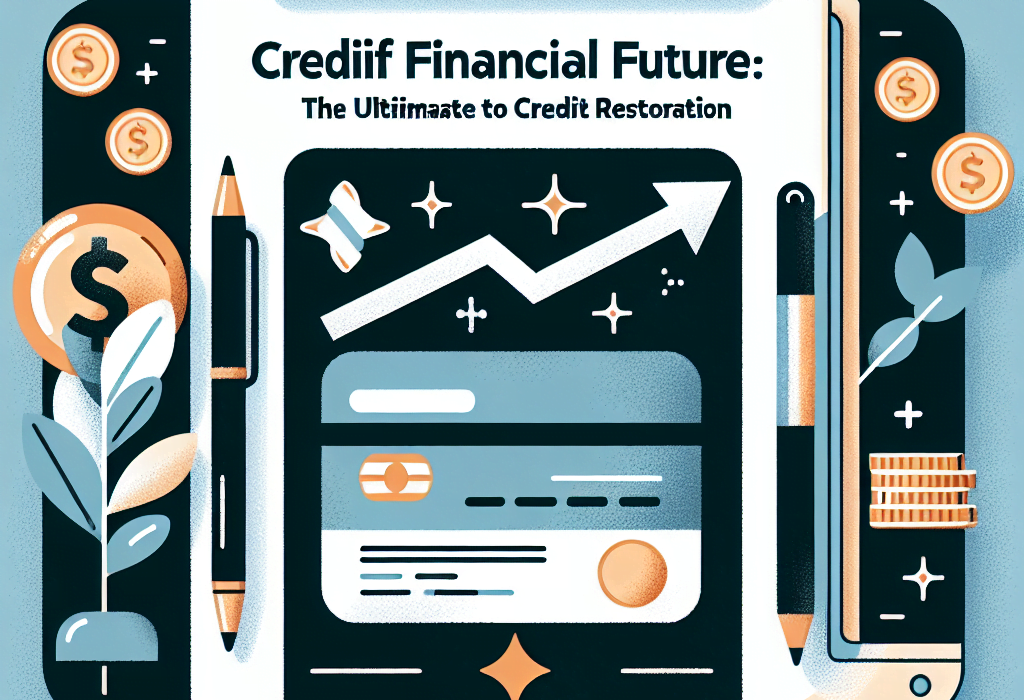Bad credit is one of the modern nightmares haunts many people’s lives. However, bad credit can be turned around. With a strategic plan of action and commitment to execute it, one can revamp their financial future. This comprehensive guide has been designed to help you understand credit restoration, why it’s essential, and how to get started. By the end of this article, you will have the information necessary to jumpstart your journey towards financial freedom.
Understanding Credit and Credit Scores
Credit at its most simplified refers to your reputation as a borrower. When you borrow money and pay it back promptly and in full, your creditworthiness improves. On the other hand, failing to make repayments or avoiding them entirely results in poor credit.
After every financial transaction, credit bureaus take this data and use it to calculate your credit score. The higher the score, the better your credit. Poor credit scores can lead to issues like loan rejection, higher interest rates, and even housing and employment problems.
The Importance of Credit Restoration
Credit restoration is the action of improving your creditworthiness. It is a crucial action that people with poor credit must undertake to reestablish a solid and positive credit history. Improving your credit score can help you gain the financial benefits associated with a top-tier score.
Without good credit, it can be challenging to take out loans or credit and to access fair interest rates. Additionally, it may have implications on other non-financial facets, such as obtaining housing or a job. Therefore, credit restoration not only benefits you financially but also enhances your life’s quality and opportunities.
The Process of Credit Restoration
The journey of restoring credit begins by analyzing your current financial situation. The first step is to request a copy of your credit report from each of the three significant credit bureaus. Analyzing these reports will help identify areas to address and create a successful credit restoration plan.
The next step is to dispute any errors on your credit reports. If an error makes a significant impact on your credit score, it’s essential to get it corrected immediately. Following this, you can work on paying off any existing debts.
After this, establishing good financial habits is vital. Pay your bills on time, maintain a low credit balance, and refrain from making any hasty financial decisions. With time, determination, and discipline, your credit score can improve significantly.
Professional Assistance in Credit Restoration
While credit restoration can be a DIY project, sometimes professional help may be beneficial. Reputable credit repair companies can help you navigate the complexities of credit restoration. They can identify and dispute errors on your behalf, negotiate with lenders, and offer expert advice tailored specifically to your requirements to restore your credit effectively.
Conclusion
The road to credit restoration can be a challenging one, but it is an achievable task with significant rewards. Improved credit can mark the beginning of a new chapter of your life where you can have financial security, lower interest rates, and more opportunities.
Frequently Asked Questions (FAQs)
1. How long will it take to restore my credit?
The length of time it takes to restore credit varies depending on the circumstances. It may take months or even years to see significant changes.
2. Can all negative items on my credit report be removed?
No, while incorrect negative items can be disputed and potentially removed, accurate negative information will remain on the report until it ages off.
3. Can a credit repair company guarantee a specific credit score?
No, it is against the law for credit repair companies to guarantee specific credit score results.
4. Can I repair my credit on my own?
Yes, individuals can embark on a DIY credit repair. However, understanding credit law and being persistent is necessary for success.
5. What is the role of a credit bureau?
Credit bureaus are organizations that collect and maintain an individual’s credit information, and they share it with businesses in the form of credit reports.







